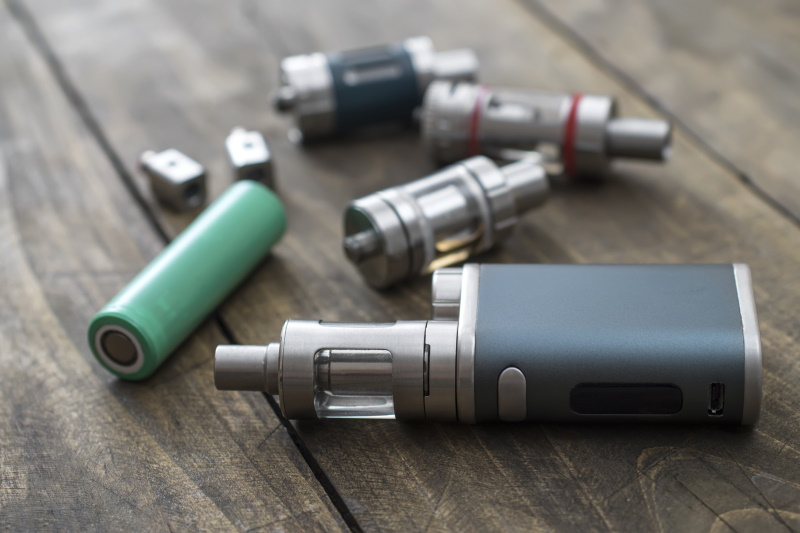Science
Otago Research Reveals Vaping Device Design Encourages Use

A study conducted by researchers at the University of Otago has unveiled how the design of vaping devices contributes to the normalization of vaping among young Māori. Lead researcher Dr. Robin Quigg found that the discreet nature of these devices enables users to vape in various public settings, including libraries and lecture theatres, without drawing attention.
Vaping Becoming Ubiquitous Among Young Users
Dr. Quigg’s research involved seven whakarōpū (collective groups) within a kaupapa Māori framework, focusing on individuals aged between 18 and 26. More than half of the participants reported never having smoked traditional cigarettes; however, they currently use or have used vaping products. This trend highlights a significant shift in nicotine consumption among the younger population.
“It was normalised to vape anywhere,” Dr. Quigg, who is affiliated with Ngati Raukawa, stated. Participants noted that the design of vaping devices allows for easy concealment, which not only encourages ongoing use but also raises concerns about nicotine addiction. “Our findings suggest the design of vaping devices, particularly their discreteness, has fostered vaping’s normalisation and continuing uptake by young people,” she explained.
The study also revealed troubling instances of vaping in sacred Māori places. Participants reported witnessing individuals vaping in locations such as the urupā and the marae. One participant remarked, “I see people walking around the whole marae complex and vape, even on the ātea,” while others expressed that this behavior contradicts established tikanga (customs).
Calls for Stricter Regulations on Vaping Devices
While many marae have designated vaping areas, some are strictly auahi kore or smoke-free. Observations indicate that designated smoking areas are often underutilized by vapers. “You would see a lot of people who are smoking cigarettes move out to the [smoking] zone, but a lot of people who are vaping won’t,” noted one participant.
In light of her findings, Dr. Quigg is advocating for more stringent regulations surrounding vaping devices. She emphasizes the need for urgent and targeted regulatory action, noting that current policies are struggling to keep pace with the evolving nature of nicotine products in Aotearoa, New Zealand. “There is a need for urgent and targeted regulatory action regarding vaping devices,” she said.
Dr. Quigg proposes several measures, including mandating larger device sizes, designing devices that are more therapeutic than lifestyle-oriented, and limiting flavors that produce appealing odors. “These attributes would reduce vape devices’ concealability and reinforce the integrity of indoor environments such as libraries, lecture theatres, and bars, as well as outdoor places that have smoke-free status, such as urupā, marae grounds, and playgrounds,” she added.
However, Dr. Quigg cautioned that regulating device design alone will not sufficiently protect young people from the risks associated with vaping. “Instead, stronger measures must be implemented to reduce the appeal of vaping,” she concluded.
-

 World1 week ago
World1 week agoPrivate Funeral Held for Dean Field and His Three Children
-

 Top Stories2 weeks ago
Top Stories2 weeks agoFuneral Planned for Field Siblings After Tragic House Fire
-

 Sports3 months ago
Sports3 months agoNetball New Zealand Stands Down Dame Noeline Taurua for Series
-

 Entertainment3 months ago
Entertainment3 months agoTributes Pour In for Lachlan Rofe, Reality Star, Dead at 47
-

 Entertainment2 months ago
Entertainment2 months agoNew ‘Maverick’ Chaser Joins Beat the Chasers Season Finale
-

 Sports3 months ago
Sports3 months agoSilver Ferns Legend Laura Langman Criticizes Team’s Attitude
-

 Sports4 weeks ago
Sports4 weeks agoEli Katoa Rushed to Hospital After Sideline Incident During Match
-

 Politics2 months ago
Politics2 months agoNetball NZ Calls for Respect Amid Dame Taurua’s Standoff
-

 World2 weeks ago
World2 weeks agoInvestigation Underway in Tragic Sanson House Fire Involving Family
-

 Top Stories2 weeks ago
Top Stories2 weeks agoShock and Grief Follow Tragic Family Deaths in New Zealand
-

 Entertainment3 months ago
Entertainment3 months agoKhloe Kardashian Embraces Innovative Stem Cell Therapy in Mexico
-

 World4 months ago
World4 months agoPolice Arrest Multiple Individuals During Funeral for Zain Taikato-Fox





















